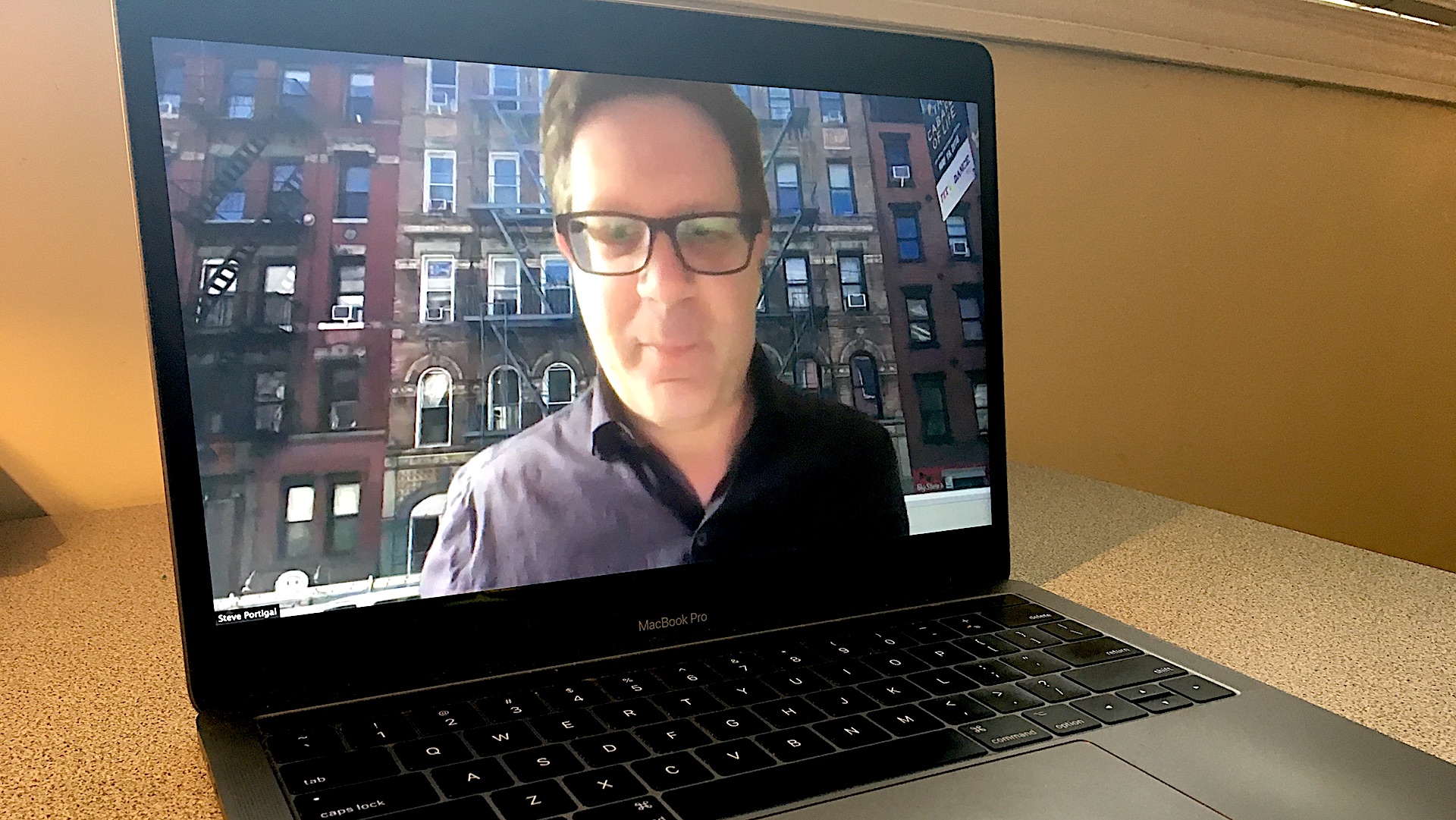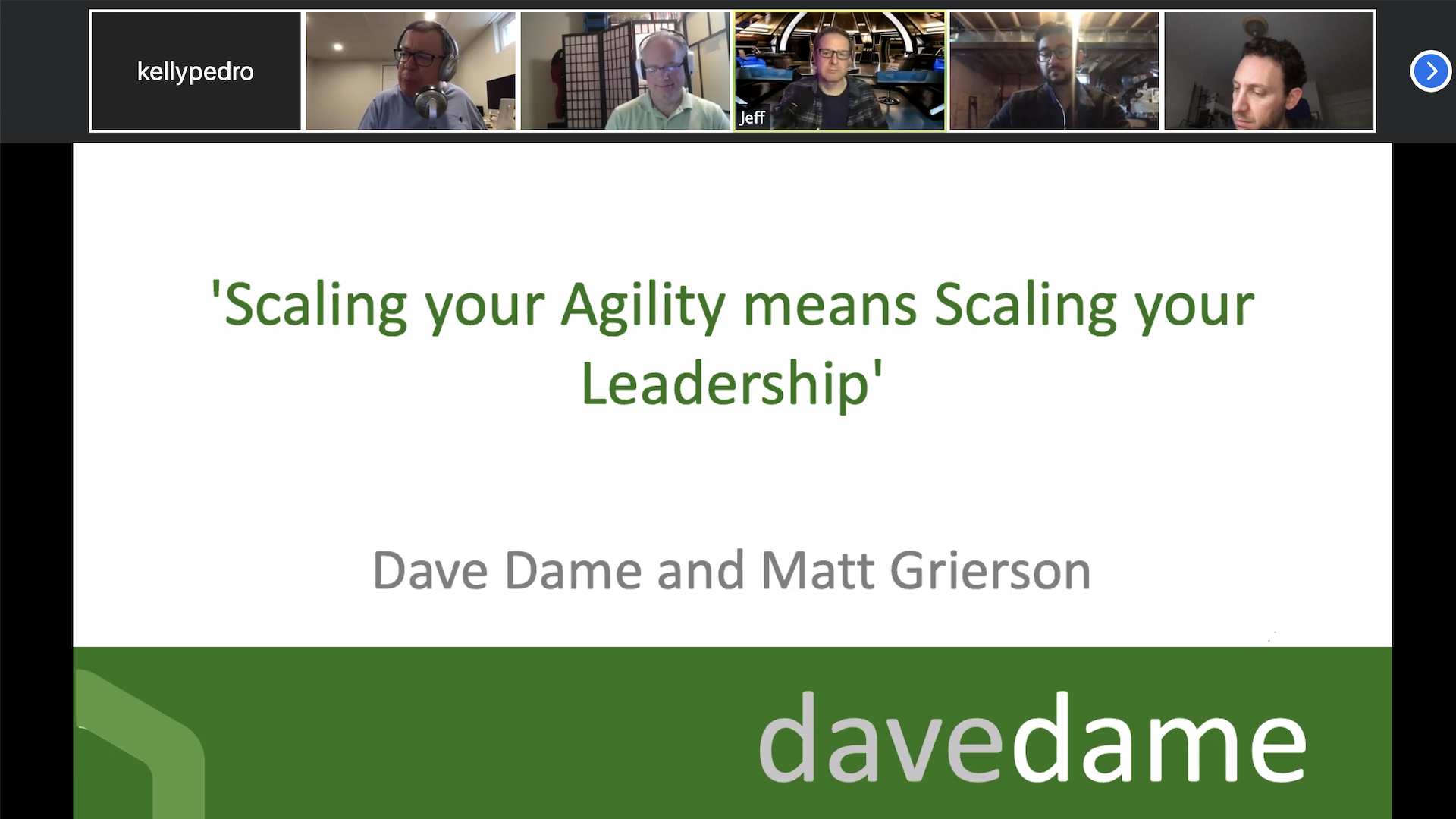UX research shouldn’t focus on problems, but rather on people.
“Step back from a problem-solving mindset and think about opportunities in people,” Steve Portigal, a UX researcher and former Fluxible speaker, told a virtual meetup that drew about 150 people from both Waterloo Region and around the world.
Portigal’s virtual talk, “Stop Solving Problems,” was a joint collaboration between uxWaterloo and ProductTank Waterloo.
Often UX designers are focused on the solution, he said, rather than a deeper consideration of the people they’re trying to help. That’s partly because designers only control part of the experience, said Portigal, who appeared via videoconferencing from California where he’s based. Because designers only control part of the experience, aftermarket fixes emerge when the original design fails, said Portigal, pointing to the selfie stick as an example.
Rather, UX researchers should shift their focus from problems to people — observing them and trying to understand them. A simple snow shovel won a design award, he said, because while observing people shovelling snow, researchers noticed that it was mostly women doing the task. So they changed the ergonomics of the shovel to better suit women.
By starting with people, UX researchers can better understand their lives, their contexts, and their values. Find out what those people have done and what they have tried, he said. Let people present themselves most broadly and then, listen deeply, Portigal added. Learn what you don’t know, then focus on what you need to understand better.
“This isn’t just warm and fuzzy stuff,” he said.
When he does UX research, Portigal pays attention to emergent behaviour. How do people self-organize? What are they doing on their own? How are they using a design in an unexpected way?
“We want them to explain everything about their world for us so we can ask questions and probe so we can understand them,” he said.
One reason organizations sometimes don’t talk to their customers is because they assume their customers are just like them, he said.
“But people are complicated and interesting.”
Portigal broke down several ways that organizations miss the mark when it comes to UX research, from relentlessly focusing on the solution to framing their product around a previously successful one, such as saying “It’s like Uber for wigs.”
You can’t combine words with “Uber” and assume it’s a good idea that’ll make money, Portigal said.
It’s also lazy, shallow thinking, he added. “This type of thinking makes the world worse, not better.”
While there are examples where UX research that relentlessly focuses on the solution succeeds, such as the Dyson vacuum, there are many more examples of where it failed because organizations over focused on solutions but didn’t think about the bigger picture.
To illustrate that point, Portigal showed an example of a public washroom door equipped with a “sanitary door opener.” The design was so flawed it needed a photo explaining how someone would use the device.
Rethink the entire problem
But there are paths to success.
Organizations can innovate by rethinking the entire problem and their approach to it.
That doesn’t have to be dramatic, Portigal pointed out. Bathroom stalls have a green and red indicator to signal whether they’re vacant and are one example of rethinking the entire problem, he said. Those indicators address an unstated social cue: that people don’t like interacting with strangers about bathroom use.
“I look at all of this as a process and help organizations think about themselves in a fresh way,” Portigal said.
After the talk, Portigal answered several questions, ranging from how to conduct remote research to how to advocate for holistic user research in organizations that might have other priorities.
On the latter, he said one way to advocate is to underscore how holistic UX research addresses knowledge gaps and lowers risk for organizations.
Another participant asked how to get into UX research. Build a network of people and go to events, Portigal encouraged the participant.
“It doesn’t have to be about getting a job, it’s about building a sense of community,” he said.
Finally, Portigal was asked how he thought the role of UX research would change after the COVID-19 coronavirus pandemic.
“This is unprecedented and overwhelming so it’s hard to know,” he said. “But some of this is on us. What are you going to be recommending, asking for, or championing going forward? It falls to us to lead that.”
Portigal’s virtual talk drew participants from around the globe, some joining from as far away as Istanbul, Israel, and Australia.
Zeitspace partner Jeff Fedor co-organizes ProductTank Waterloo, while Zeitspace partner Mark Connolly co-organizes uxWaterloo.
ProductTank’s next session is happening May 5, where Brant Cooper, author of The Lean Entrepreneur and CEO of Moves the Needle, will talk about lean innovation and five ways you can leverage it for your business. Registration opens April 21.
uxWaterloo also meets monthly. You can learn about their next event when it’s scheduled on Meetup.





